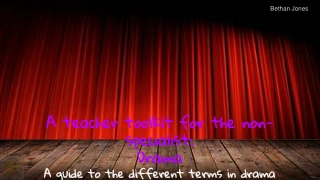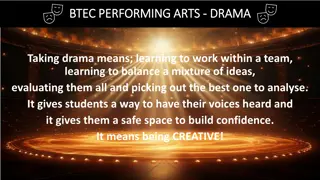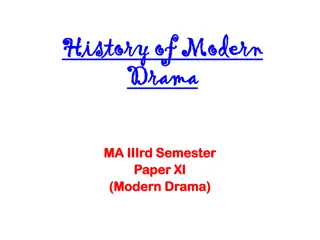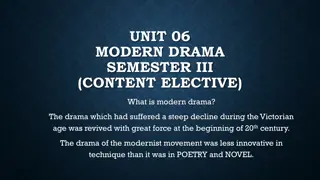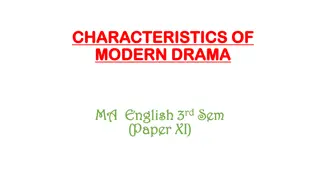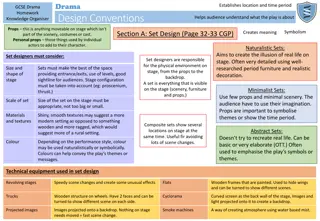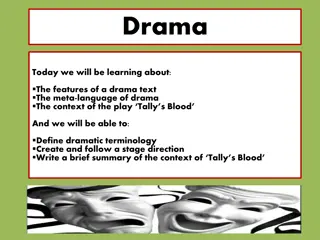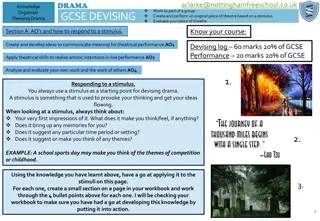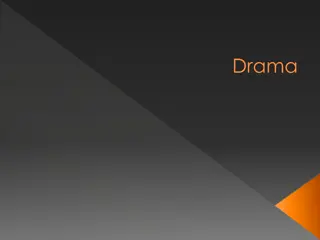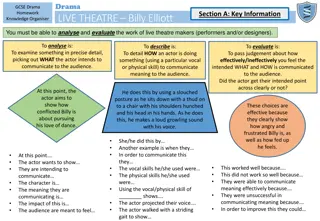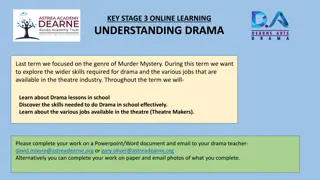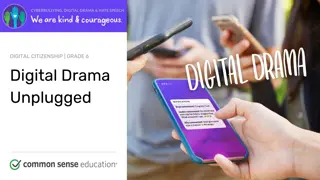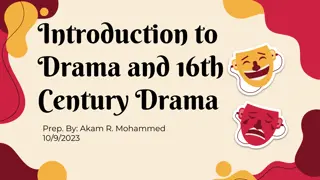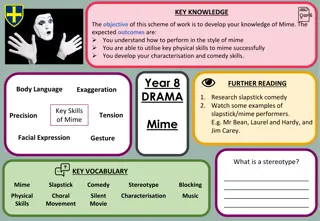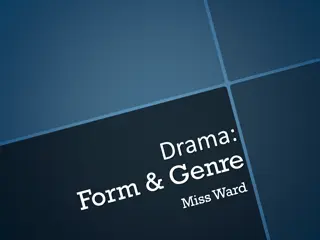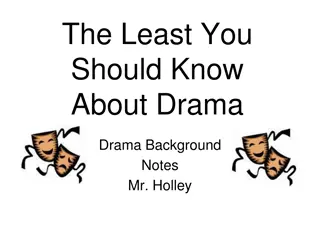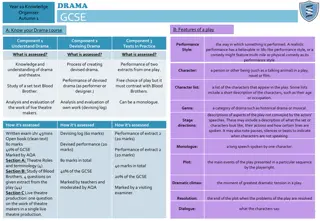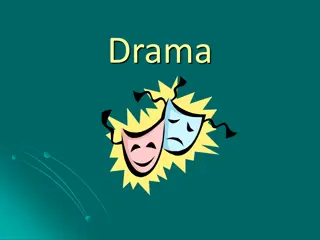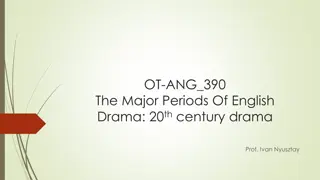Drama: Vocabulary and Analysis of "Sorry, Wrong Number
Dive into the world of drama with a focus on the play "Sorry, Wrong Number." Learn about key vocabulary terms like acts, scenes, stage directions, and cast of characters. Engage in critical thinking by imagining the physical environment, character appearances, language, and production elements of the play. Delve deeper into the storyline through specific lines analysis and character predictions. Listen to the original broadcast for an immersive experience.
Download Presentation

Please find below an Image/Link to download the presentation.
The content on the website is provided AS IS for your information and personal use only. It may not be sold, licensed, or shared on other websites without obtaining consent from the author. Download presentation by click this link. If you encounter any issues during the download, it is possible that the publisher has removed the file from their server.
E N D
Presentation Transcript
Vocabulary: A drama, or a play, is a piece of writing that is presented almost exclusively through dialogue.
VOCABULARY: Scripts are broken down into one or more acts, or major divisions of the play.
VOCABULARY: Each act is subdivided into a scene, or smaller division within the act.
VOCABULARY: Stage directions: notes, which are often in italics or parentheses, help the actor interpret the scene for the audience.
VOCABULARY: Cast of characters: major and minor characters who are listed along with a brief description of the character s role in the story.
PAY ATTENTION AS YOU READ: 1) Imagine the physical environment 2) Imagine the character s appearance 3) Imagine the language of the play 4) Imagine the production of the play
Sorry, Wrong Number Mid-twentieth century: - phones were literally dialed - operators connected callers - wiring systems connected the phones - Sometimes a crossed wire mistake could occur.
Cast of Characters: #1) What can you predict about the action of the play from the Operator and Information listings?
Listen to the original broadcast. https://www.youtube.com/watch?v=0dT4nhLyKlM
Lines 80-96: #3) What do the audience and Mrs. Stevenson learn at the same time?
Lines 289-304: #6) What does the audience see as Mrs. Stevenson dials the phone?
Lines 415-439: #8)Which words show what Duffy is doing? What do his actions reveal about him?
Lines 537-539: #10) What is the sound effect in these lines? What is its significance?
Lines 821-837: #12) How are the audiences probably reacting at this point in the play?
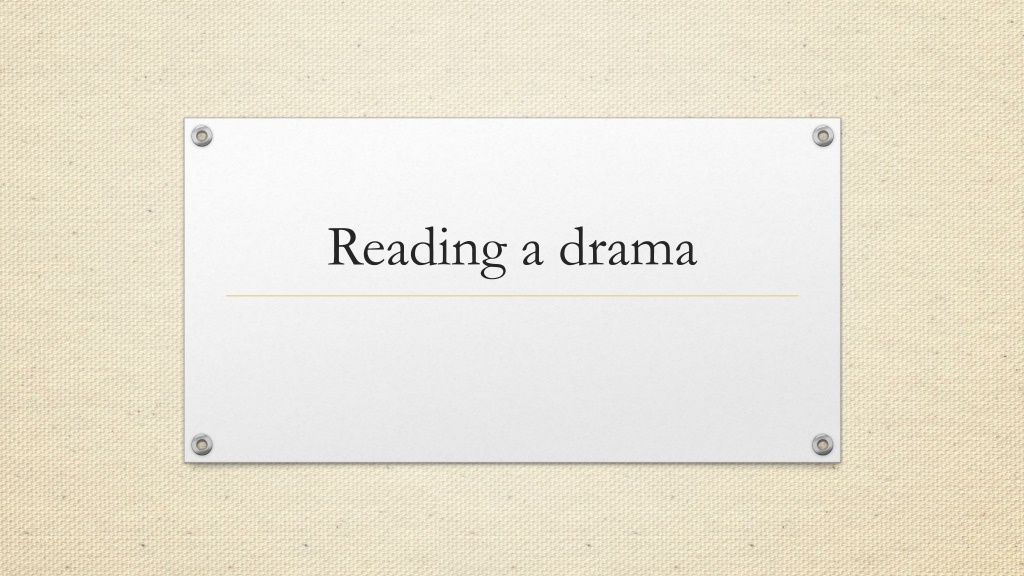
 undefined
undefined





